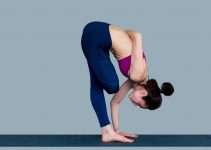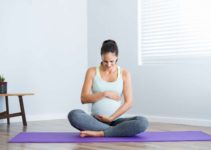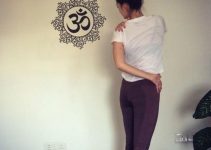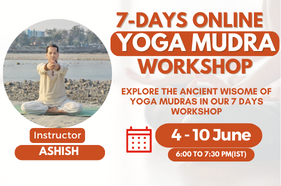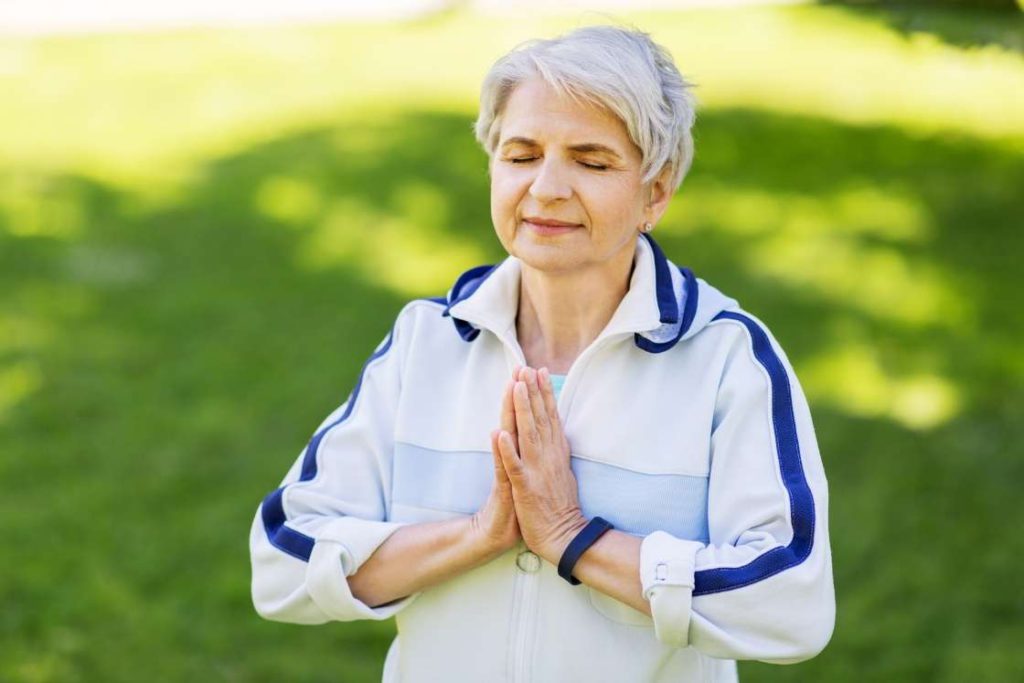
Bones are often considered as the ultimate bio-material; light, strong, yet capable to adapt to different functions. And the best part, it heals itself. Our bone tissues are dissolved and formed on a regular basis, a process that keeps us ever healthy.
Healthy bones make a healthy life. Unhealthy bones lead to conditions like osteoporosis. Thus, to resolve osteoporosis, the equation is simple, you’ve got to improve your bones.
Root Cause of Osteoporosis
The outer covering or the compact of our bones are made of porous material, osteons. It is the right balance of porosity that maintains proper strength and flexibility. In osteoporosis , the porosity of osteons increases, resulting in loss of density.
The osteons forming the outer structure of the bones are packed neither too densely nor too loosely. This arrangement gives the outer structure a porous nature. Thus it’s obvious that any abnormality with the osteons that interferes with their arrangement will disturb the porous nature.
So what causes this change is the main question. A major factor is obviously age; at old age our cells lack in their regenerative abilities. A family history of osteoporosis or issues like thyroid disorder, can also lead to osteoporosis.
Additionally, lack of calcium and phosphorus in your diet can be a cause. Unhealthy habits like smoking and drinking, and lack of exercise are also equally regarded as potential causes of osteoporosis.
Yoga & Bone Health
Your skeletal system is something yoga can surprisingly benefit. New research suggests that yoga practices help you increase your bone mineral density (BMD) and bone marrow quality. Yoga will also largely help you add better balance and flexibility to your bones.
Unlike muscles, your bones are made of hard tissues, which make them very resilient. Thus even for yoga, it will take some time to make alterations to your bones. The effects will be seen only if you practice regularly, for an extensive period.
You will get certain short term benefits as well. Within a few days of practice you will find the bone related pains absolving. You will also find your bones functioning with a better mobility.
You continue to strictly adhere to your practice, and gradually you will realise your bones changing from its core. Just like the saying goes, you feel it in your bones!
Healing Osteoporosis with Yoga
Healing osteoporosis with yoga is holistic and sensible. Keeping aside the fact that yoga can directly influence your bone system, it can also influence other body systems that indirectly benefit or harm your bone health.
The outer material of your bones has blood vessels running within them, carrying nutrients. Lack of nutrients for the bone cells is a major issue in osteoporosis. Yoga helps you increase the blood flow in bone blood vessels, for better nutrition.
The practice of yoga can uplift your aggregate physical vitality and enrich your life force, which will restore the regenerative abilities of your bone cells. Experts say that every time you hold a pose, it stimulates osteoblasts (cells responsible for regeneration) to create new osteocytes (cells that interact with a mineral matrix and form the osteons.)
And finally, regular exercise and stretching of your bones, keep your bone cells, osteocytes, active enough to maintain their numbers. Osteocytes and their interactions with minerals establish the solid structure of bones. Regular practice of yoga will ensure a healthy interaction between osteocytes and minerals.
Last but not the least, yoga practices will improve your muscle strength and develop other soft tissues. Strong soft tissues will absorb most of the tension, and reduce the impact on your brittle bones. In short your bones will be comfortable at a great range of activities and motions.
Can you do yoga with osteoporosis?
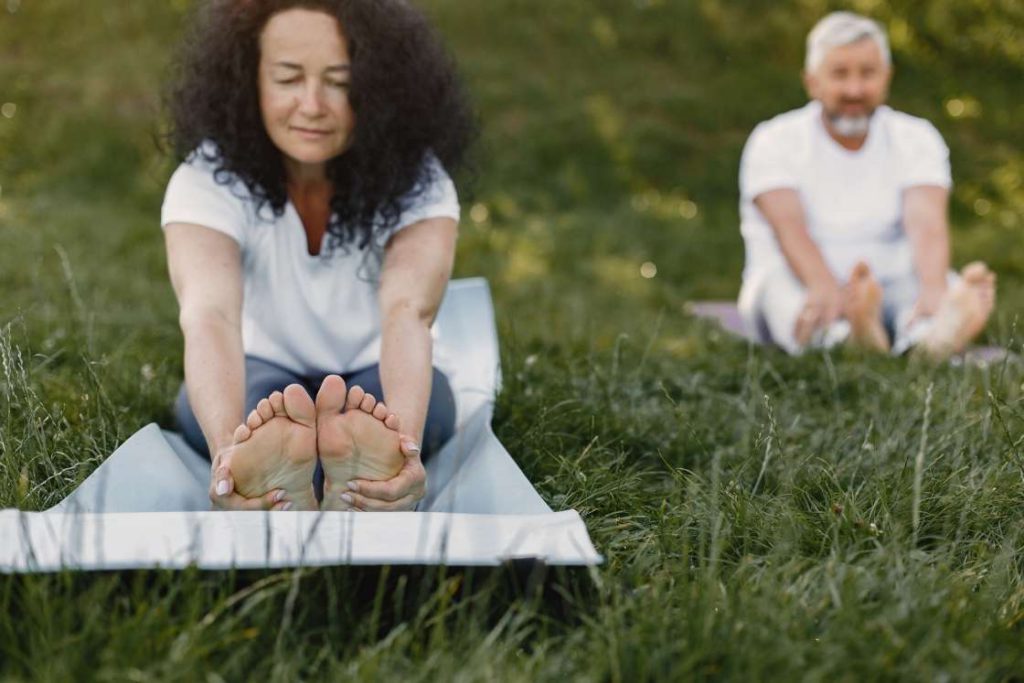
There are different forms and styles of yoga asanas, with different physical requirements. Further, different poses have different benefits in osteoporosis, with focus on different areas of your body as well.
The range of option in yoga is great. You will have to do your research and shortlist the poses that will benefit you, as well as, be well within your ability.
Additionally, lack of exercise is something that causes osteoporosis. So you will have to include some form of exercise in your routine. And yoga provides multiple light tension poses to work with.
However, you will still need to consult your physician. In certain severe cases of osteoporosis, which are very rare, physical activities are completely prohibited. Discuss with your doctor to understand, which poses can your body withstand, and which poses your body cannot.
Yoga Poses for Osteoporosis
Almost every yoga pose you strike, is going to involve your bones. Thus every pose will have some degree of benefit on osteoporosis. The key challenge is to include such poses that address all major bone areas of your body. The poses should also be considered risk free to practice with osteoporosis
1. Tree pose – Vrksasana
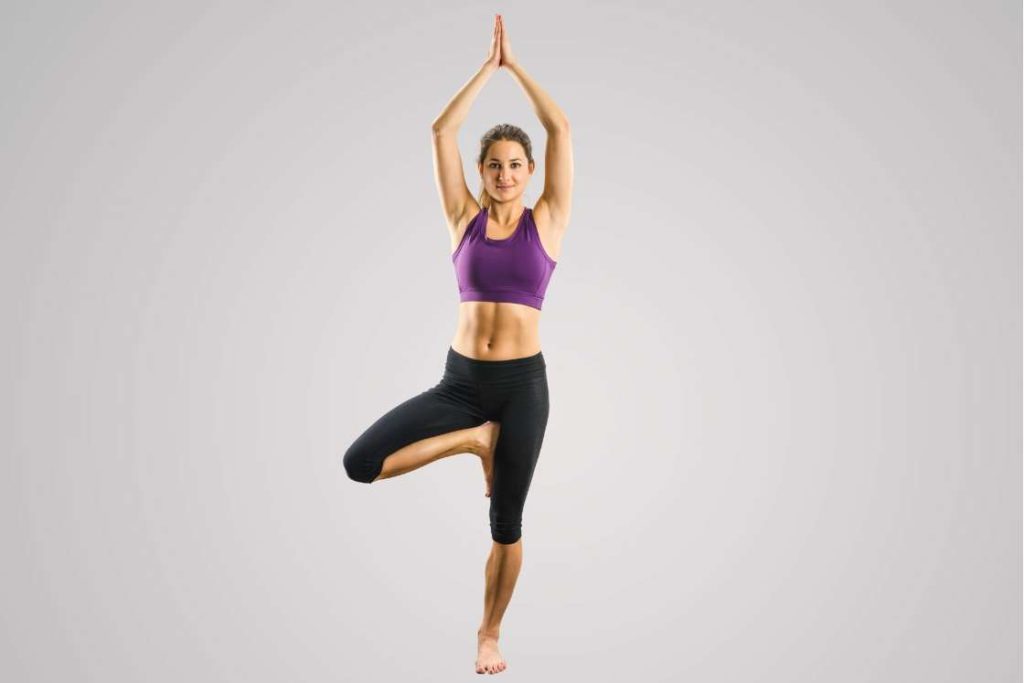
In osteoporosis, your bones feel weak, and you feel less in control of your body. Tree pose will bring balance and stability to your bone system, restoring your control. Practicing this pose tree pose develops the bones in your hips, thighs, knees, and ankle; the lower body in general. Tree pose will also heal your spine, shoulder blades, and ribs.
- Stand in mountain pose.
- Shift your weight to your right leg.
- Bend your left knee, lift it up, and rest your left foot against the inner side of your right thigh.
- Balance your body straight on your right leg.
- Raise both your hands over your head and close your palms in a Namaste mudra.
- Breathe moderately and steadily.
- Hold the pose atleast for 30 seconds.
- As you get comfortable with the balance you can increase the duration upto a couple of minutes.
- Repeat the pose by balancing on your left leg.
If you have severe symptoms of osteoporosis, then you might want to try the supported version. You can either place a chair under the shin bone of your folded-up leg, or keep a wall on the side of your balancing leg and use your hands for support.
2. Plank Pose
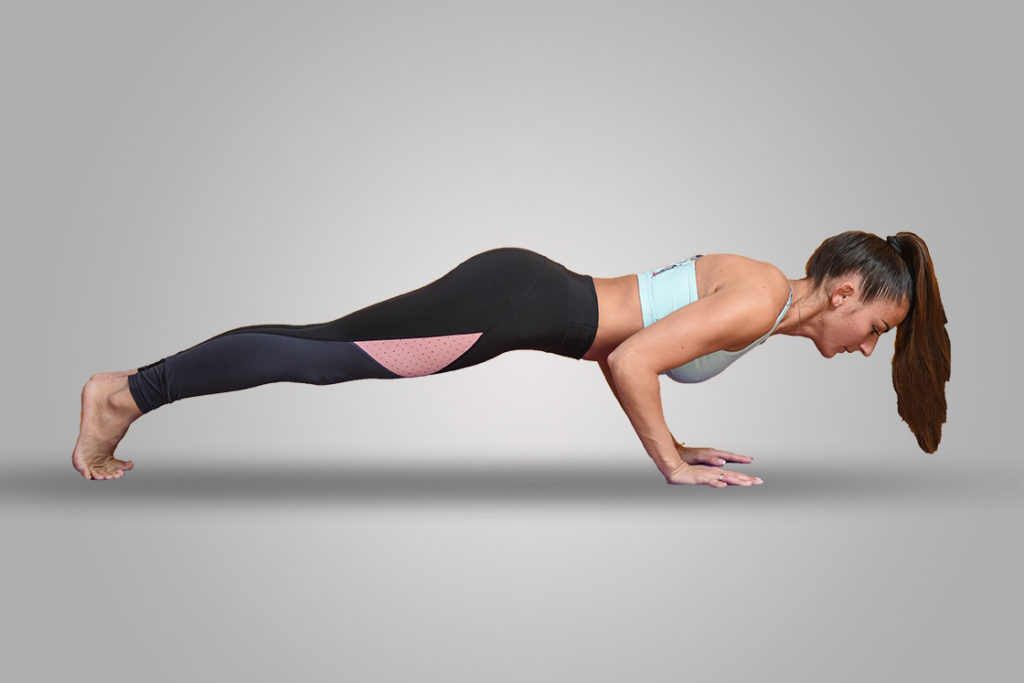
Plank pose is a very good beginner level pose for your core strength. This pose will hold your bones firmly in their position, and train them to withstand prolonged tension. Plank pose will also help you increase your soft tissues, that will reduce the effort of your bones
- Get down on all fours, your knees and hands.
- Lift your knees, and stretch back your legs, straight.
- Keep your legs on your toes, and keep your legs almost joined, but not touching.
- Your hands should be placed shoulder length wide, and exactly under your shoulders.
- Feel free to adjust your hands and legs at any time, to get in the proper posture.
- Hold the plank for 30 seconds to a minute
If your osteoporosis isn’t very severe, and you feel like increasing the benefits of this pose, then try the weighted variant. In this, you can tie weighted sandbags around your hip, knees and biceps.
3. Warrior 2 Pose
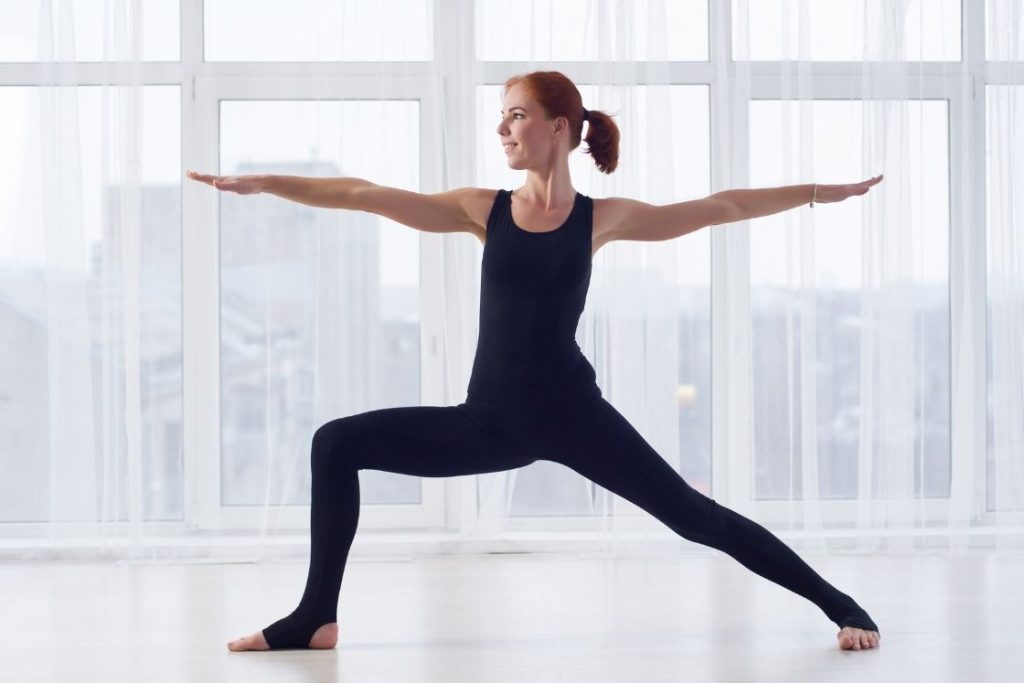
Warrior 2 pose is a fine yoga that both stretches and strengthens at the same time. Like the plank, the warrior pose too, teaches your bones to be balanced and stable. But additionally, the stretches of this pose also prepares your bones for a wide range of motions. Warrior pose has very targeted benefits, to your knees, hips, ankles and shoulders; the joints that suffer the most in osteoporosis.
- Stand in mountain Pose
- Spread your legs approximately 3 feet wide
- Raise both your hands at the sides of your body, keeping them parallel to the ground.
- Rotate your left foot to your left by 90 degrees; revolve only your toes while keeping your heels fixed.
- Rotate your right foot to your left, by 30-45 degrees.
- Bend your left knee and push your weight to your left.
- Don’t lean on your left leg, keep your body centered.
- Your right leg will be stretched straight.
- Your left thigh should be parallel to the floor and the left lower leg 90 degrees to the floor.
- Breathe for 10 seconds, and repeat the pose on the other side
You might need to change the foot gaping depending on your height. A taller person, or someone with tall legs will need to start with a greater leg gapping, whereas the opposite, for someone shorter.
4. Goddess Pose
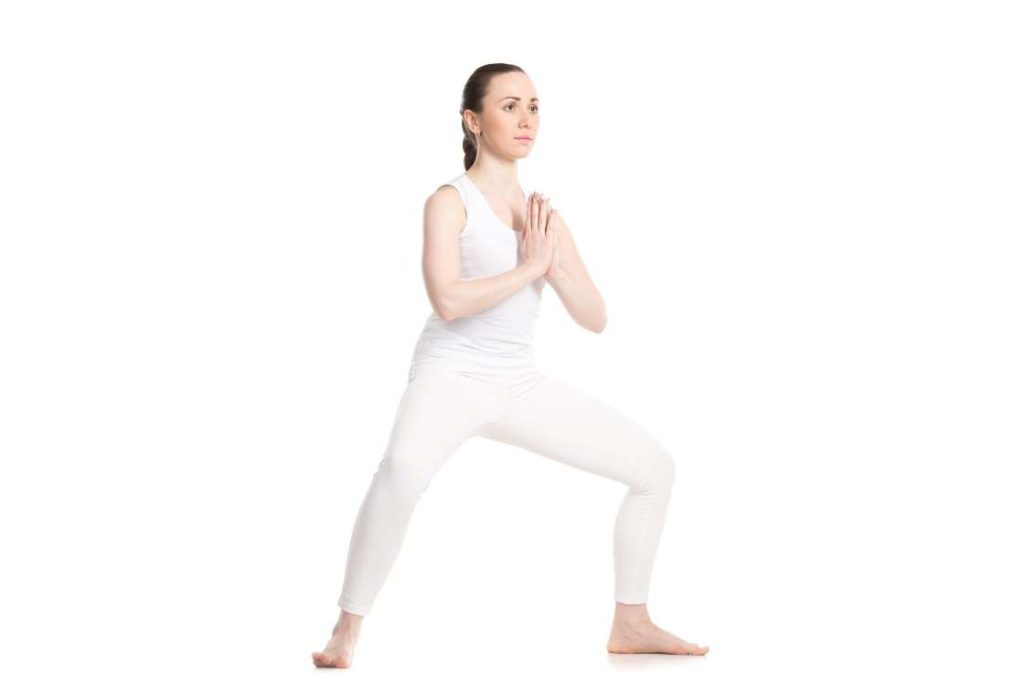
The goddess pose is one of the best yoga poses for your lower body. Think of this pose like a stretching squat. This pose will work really dip in your hip joint, pelvis muscles and groin region. Goddess Pose will also strengthen your thigh bones, hamstrings and knee joint
- Stand with your legs wide apart, roughly about 3 feet, which you will need to adjust according to your height.
- Now turn your feet outward; and your heels facing each other.
- Your knees will also turn outward, whilst you calf muscles will face each other.
- Slowly bend your knees and bring your body down, but do not lean forward like in squat. Keep your back straight as you go down.
- Stop before your thighs get parallel to the ground.
- You can raise your arms overhead, join them in a Namaste mudra, or simple raise your hands at the sides of your body.
- Hold your pose for 10 breaths and release the pose.
Initially this pose can have some balancing issue, especially if you have osteoporosis. Thus it is better to practice this pose Infront of s support, so that you can grip it for balance as you go down.
5. Bridge Pose – Setu Bandhasana
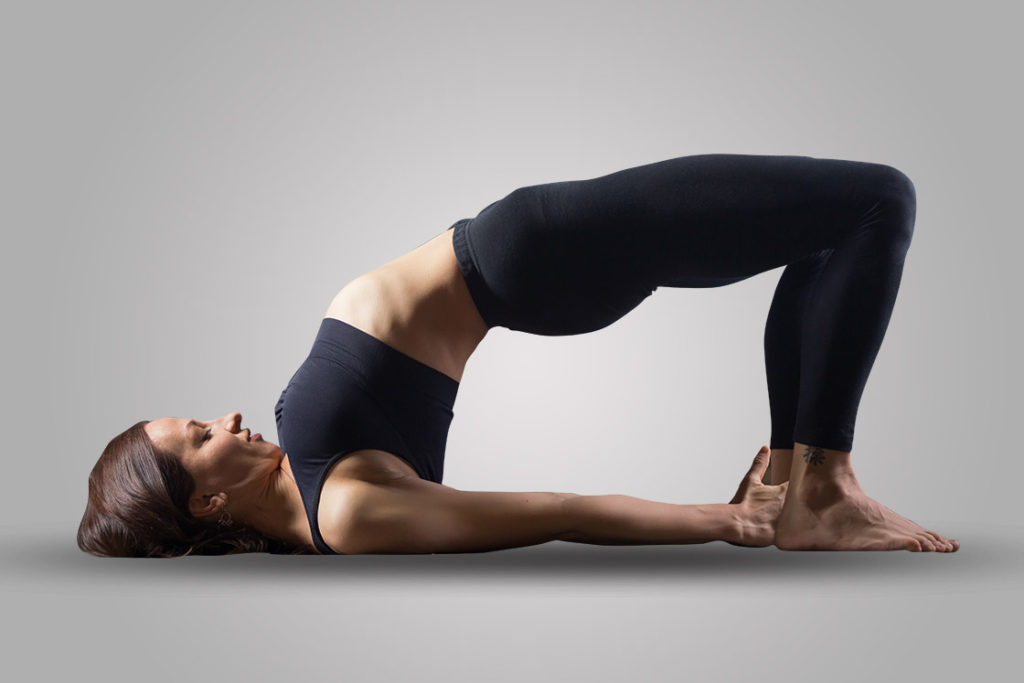
Bridge pose is a great pose to open up the muscles and bones in your upper body, especially your hips, ribs and shoulders. This pose will also relieve osteoporosis related body pains if you have any. Bridge pose also improves the blood circulation in your body, that will provide better nutrition to your bones.
- Lie supine on your back.
- Keep your hands by the sides of your body.
- Fold your knees, like you would in a crunch.
- Keep your knees hip length apart, and keep them so throughout the pose.
- Push against the floor with your hands and feet, and use your core and back, to pull up your pelvis upwards.
- However, keep your shoulder blades and shouldes pressed to the ground.
- Raise your pelvis to a point, that your chest presses against your chin.
- Look towards your heart.
- Hold your pose for 10 breaths.
The hold requires a lot of core and back strength. If you lack this strength use a yoga block to support your lift under your tailbone.
6. Corpse Pose – Shavasana
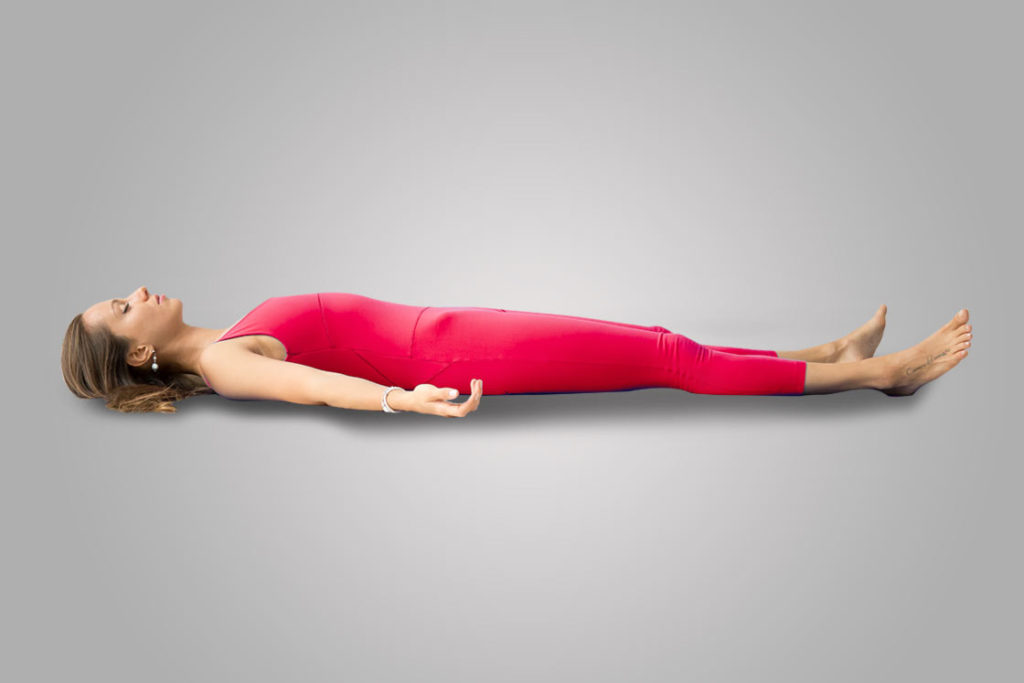
Savasana is the pose to end your routine with. Osteoporosis causes degradation of your bones, which on further stress, goes through many minute injuries. Thus relaxation and resting exercises will be equally important to your healing process. Savasana will create a state of regeneration and healing in your bones. Additionally, it will evenly distribute the blood flow to all parts of your body.
- Lie supine on your back, with your hands stretched out, and your legs slightly wide apart.
- Close your eyes.
- Now relax; truly relax. Focus on each muscle and joint in your body, and concentrate on them loosening.
- Gradually you will need to enter a state where your entire body becomes relaxed, not a single tissue should be stiff.
- Breathe steadily and moderately.
- There is no time limit on this, do it as long as your schedule permits
This pose has a mental challenge. Thought distractions are commonly faced by all, which comes in the way of concentrating and consciously relaxing. This ability has to be acquired with time and practice
